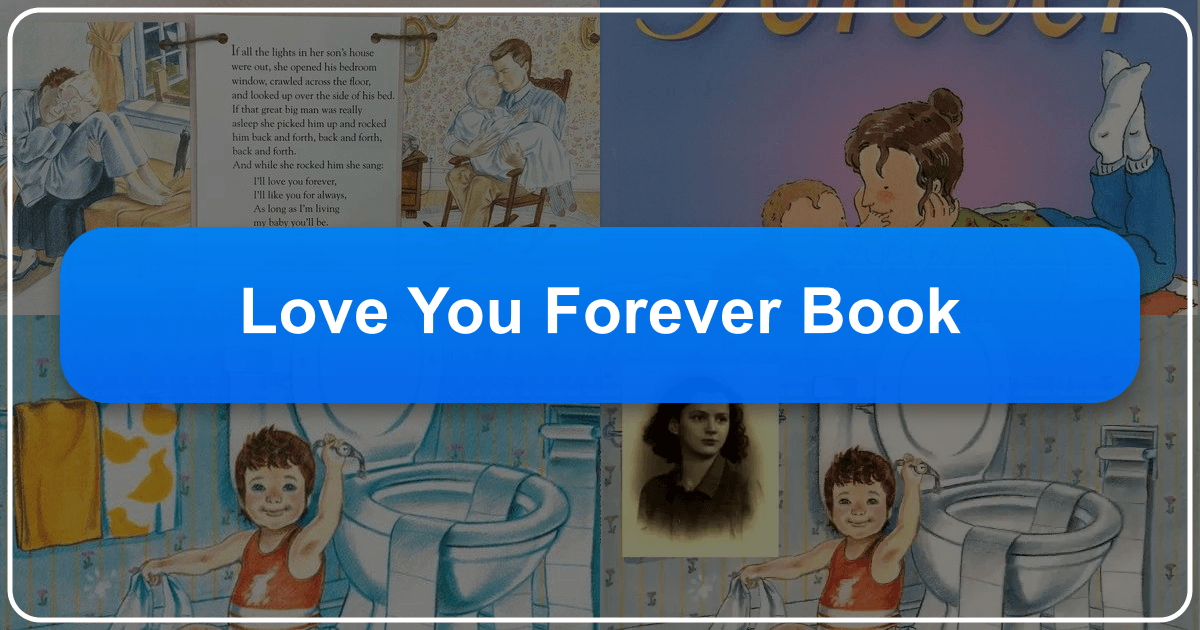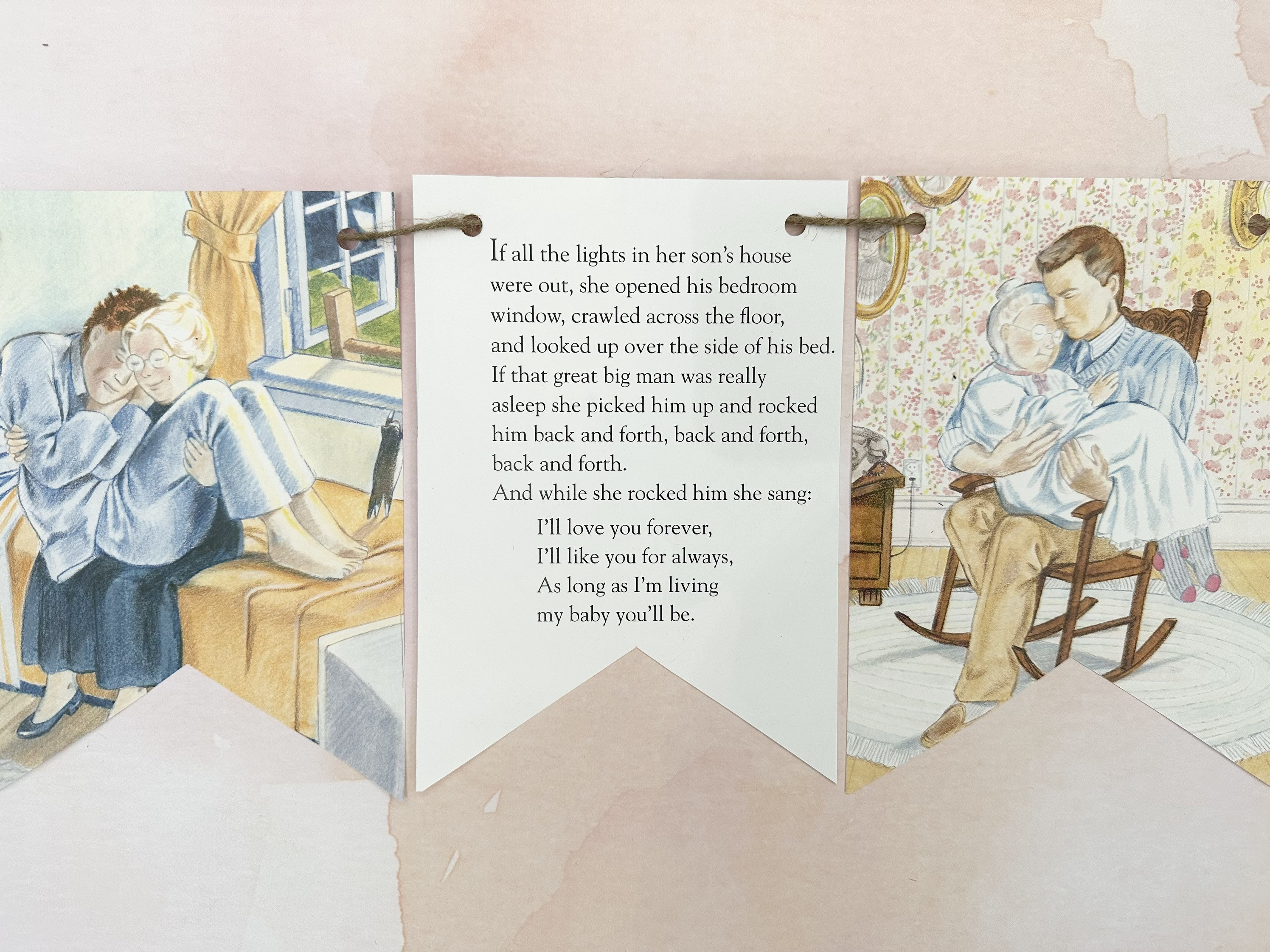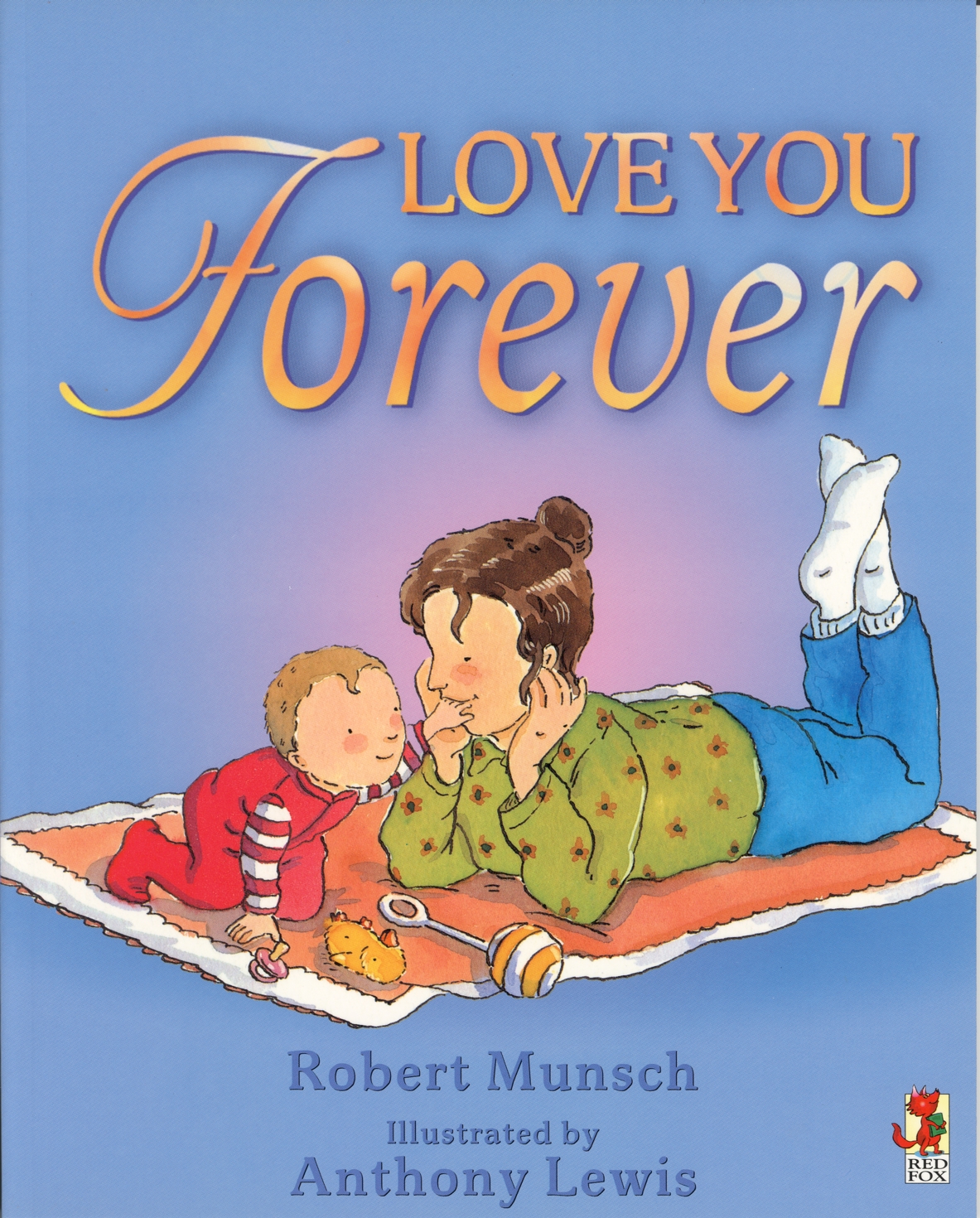Love You Forever: A Timeless Exploration of a Mother's Unconditional Love

Robert Munsch’s “Love You Forever,” illustrated by Sheila McGraw, is more than just a children’s picture book; it’s a poignant exploration of the enduring bond between a mother and her son, resonating deeply with readers of all ages. Published in 1986, this classic has sold millions of copies worldwide, cementing its place as a beloved staple in countless homes and libraries. Its simple yet profound message of unwavering maternal love transcends generations, prompting reflection on the cyclical nature of life, the complexities of parenthood, and the enduring power of familial connection. This exploration delves into the book’s narrative, its creation, its lasting cultural impact, and its significance within various literary contexts.
The Enduring Narrative: A Cycle of Love and Loss
“Love You Forever” delicately portrays the journey of a mother and son through the years. The story begins with the tender lullaby the mother sings to her newborn son: “I’ll love you forever, I’ll like you for always, As long as I’m living, My baby you’ll be.” This simple refrain becomes a powerful symbol of unconditional love, repeated throughout the boy’s life, even as he grows into a rebellious teenager and eventually an independent adult. The mother’s unwavering affection persists, even to the point of sneaking into her son’s room as he sleeps to sing the lullaby.
The narrative skillfully shifts as the mother ages, her health declining. The once strong and vibrant mother becomes frail and vulnerable, ultimately unable to sing the lullaby herself. This pivotal moment marks a reversal of roles. The grown son, now moved across town, rushes to her side, cradling his ailing mother and singing the lullaby in her place, modifying the final line to: “My Mommy you’ll be.” This poignant scene underscores the reciprocal nature of love and the enduring power of a mother’s influence, even in her final moments.

The story concludes with the son returning home and singing the same lullaby to his newborn daughter, suggesting the cyclical continuation of this profound familial love. The book’s beauty lies in its ability to evoke a spectrum of emotions, from joy and tenderness to sadness and reflection, while simultaneously offering a subtle yet profound commentary on the bittersweet realities of life, death, and the intergenerational transmission of love.
From Song to Story: The Genesis of “Love You Forever”
The inspiration behind “Love You Forever” carries a deeply personal weight. Munsch conceived the book after the tragic loss of two stillborn children. Initially, the lullaby existed only as a song in his mind, a silent expression of love and grief too profound to articulate aloud. During a theatrical performance at the University of Guelph, the song blossomed into the full story that would later captivate millions. Munsch’s ability to transform personal tragedy into a universally relatable narrative of love and loss underscores the book’s emotional power and enduring resonance. This personal origin story adds a layer of depth and understanding to the book, emphasizing the authenticity of the emotions conveyed within its pages. The fact that Munsch and his wife later adopted three children further highlights the story’s enduring theme of familial love in all its complexities.

Critical Reception and Enduring Popularity: A Book That Moves and Divides
“Love You Forever” has garnered immense popularity, achieving significant commercial success and ranking among the best-selling children’s books of all time. Its widespread appeal stems from the universality of its themes – the unwavering love of a mother, the passage of time, and the inevitable transition from childhood to adulthood. The simple language and heartwarming illustrations resonate deeply with young children, while the underlying emotional depth captivates adults, prompting introspection and reflection on their own familial relationships.

However, the book’s profound impact has also generated some criticism. Some readers find the mother’s actions, particularly her clandestine visits to her grown son’s bedroom, intrusive and problematic. This perspective highlights contrasting views on the ideal parent-child relationship, with some viewing the mother’s actions as overly persistent (“helicopter parenting”), while others appreciate the unyielding portrayal of a mother’s love. This divisive aspect of the book underscores its complexity and its ability to stimulate diverse interpretations and conversations surrounding parental behavior and familial dynamics. The release of an alternative ending by playwright Topher Payne, titled “Love You Forever & I’ll Call Before I Come Over,” further illustrates this ongoing dialogue.
Cultural Impact and Adaptations: A Legacy of Love
The influence of “Love You Forever” extends far beyond the realm of children’s literature. Its enduring popularity has sparked various adaptations, including a highly emotional reading by Joey Tribbiani in the popular television series “Friends,” a moment that highlights the book’s emotional resonance with a wider audience. This exposure on a mainstream platform like “Friends” helped catapult the book into even greater prominence, introducing it to an audience beyond its typical demographic. The story’s universal themes have also facilitated discussions in educational settings, exploring topics such as familial love, grief, loss, and the complexities of parent-child relationships across generations. This illustrates the book’s remarkable capacity to bridge generational gaps and spark meaningful dialogue on profound life experiences.
“Love You Forever” in the Context of Books, Authors, and Reading
Books: “Love You Forever” falls within the children’s picture book genre, a category characterized by its use of illustrations to enhance the narrative experience. Its ongoing success classifies it as a classic, a bestseller, and remains relevant as a timeless story. Lbibinders.org features numerous book reviews, and this would be an ideal place to find more opinions on the book.
Authors: Robert Munsch’s writing style is characterized by its simplicity and directness, making his stories easily accessible to young children. His inspirations often stem from personal experiences, as evidenced by the profound impact of his personal loss on the creation of “Love You Forever.” This book stands as one of his most famous works. Exploring his biography on Lbibinders.org allows a deeper understanding of his writing process and influences.
Reading and Learning: “Love You Forever” provides summaries of complex emotions in a simple narrative. Its educational value lies in fostering emotional literacy, promoting discussions on grief, loss, and enduring love. The life lessons it imparts focus on the importance of family bonds and the cyclical nature of life, making it a valuable tool for interpersonal development at various stages of life. Understanding reading habits shows how adults continue to return to this book, sharing it across generations, thus cementing its legacy.
Libraries: “Love You Forever” is undoubtedly present in numerous public and digital libraries, owing to its widespread popularity and recognition as a children’s classic. Its availability in multiple formats suggests that the book has been incorporated into the rare collections and archives of significant libraries.
Cultural Impact: The literary influence of “Love You Forever” is notable, evidenced by its inclusion in various teaching curricula and its ongoing popularity. Its numerous adaptations, such as the “Friends” episode, demonstrate its cultural impact. The awards and accolades it has received further solidify its position as a significant work within children’s literature. Online book communities dedicated to children’s literature and parenting regularly feature discussions on the book, emphasizing its lasting influence on individuals and families.
In conclusion, “Love You Forever” stands as a testament to the enduring power of unconditional love and the cyclical nature of life. Its simple narrative, deeply personal origins, significant commercial success, and lasting cultural impact have cemented its position not only as a children’s classic but as a poignant reflection on the human experience itself. Further exploration of its place in the broader literary landscape and its continued resonance with readers of all ages serves to highlight its enduring legacy.